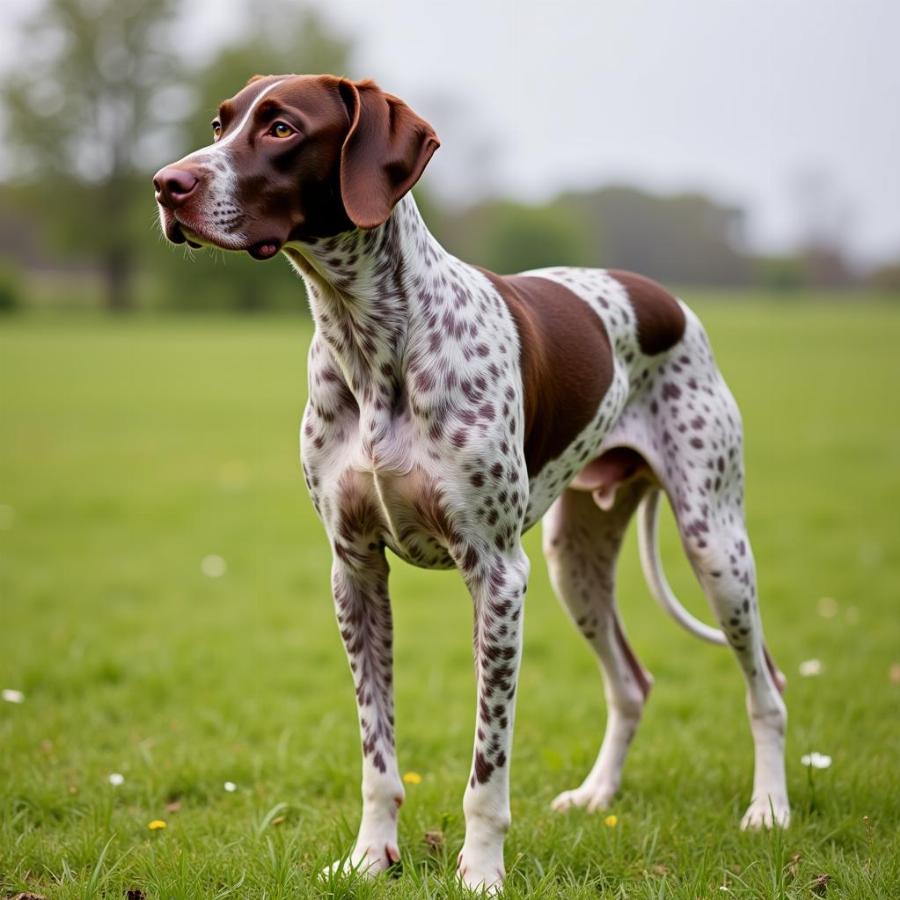For centuries, humans and dogs have worked side-by-side in the field, developing a unique bond built on trust and shared purpose. Hunting dogs, with their specialized skills and unwavering drive, play a crucial role in this ancient partnership. But what makes a hunting dog “best”? The answer depends on the game you’re pursuing and the terrain you’re covering.
This comprehensive guide will explore some of the top hunting dog breeds, highlighting their unique strengths and what makes them excel in their respective hunting disciplines. Whether you’re an experienced hunter or just beginning to explore the world of hunting dogs, this guide will provide valuable insights to help you find your perfect hunting companion.
Unwavering Pointers: Masters of Scent and Precision
Pointers, as their name suggests, are renowned for their exceptional ability to locate and “point” towards game birds. Their keen sense of smell, coupled with a distinctive, statuesque pose, alerts hunters to the presence of prey.
German Shorthaired Pointer: The Versatile Athlete
The German Shorthaired Pointer is a highly adaptable breed celebrated for its versatility. They are known for their endurance, intelligence, and eagerness to please, making them excellent all-around hunting dogs.
 German Shorthaired Pointer on a Hunt
German Shorthaired Pointer on a Hunt
English Pointer: Grace and Determination Combined
The English Pointer is an elegant and athletic breed with a rich history in the field. They possess a remarkable ability to cover ground quickly and efficiently, making them ideal for hunting in open terrain. Their unwavering focus and determination make them a force to be reckoned with.
Retrievers: Masters of Water and Retrieval
Retrievers are renowned for their soft mouths, unwavering retrieving instincts, and affinity for water. These traits make them exceptional hunting companions, particularly for waterfowl hunting.
Labrador Retriever: America’s Favorite Hunting Buddy
The Labrador Retriever consistently ranks as one of the most popular dog breeds in the United States, and for good reason. They are intelligent, eager to please, and possess a natural retrieving instinct that is second to none. Their friendly nature and trainability also make them excellent family pets.
Golden Retriever: Gentle Souls with a Love for the Hunt
Golden Retrievers are known for their gentle nature and loyalty, but don’t let their sweet demeanor fool you; they are also capable hunting dogs. Their intelligence, biddability, and soft mouths make them excellent retrievers, especially for waterfowl.
Hounds: Tracking Experts with Unmatched Stamina
Hounds are olfactory athletes, relying on their exceptional sense of smell to track and pursue game. They possess incredible stamina and determination, making them well-suited for hunting in challenging conditions.
Beagle: Small but Mighty Scent Hounds
Beagles may be small, but they are powerful scent hounds with a distinctive bark that echoes through the woods. Their compact size allows them to navigate dense underbrush, while their exceptional noses lead the way. They are commonly used for hunting rabbits and other small game.
Bloodhound: Legendary Scent Trackers
Bloodhounds are renowned for their extraordinary sense of smell, often used by law enforcement to track missing persons. Their tracking abilities also make them exceptional hunting dogs, capable of following even the faintest of scents over long distances.
Finding Your Perfect Hunting Companion
Choosing the right hunting dog is a personal decision that should be based on your specific needs, hunting style, and living situation. Consider factors such as the type of game you’ll be hunting, the terrain you’ll be covering, and your experience level.
Remember, regardless of breed, all hunting dogs require proper training, socialization, and care to thrive in both the field and the home.
Frequently Asked Questions about Hunting Dogs
What is the best age to start training a hunting dog?
The ideal age to begin training a hunting dog is between 8 and 12 weeks old. Early socialization and basic obedience training are crucial for developing a well-rounded hunting companion.
How much exercise does a hunting dog need?
Hunting dogs are high-energy breeds that require a significant amount of exercise. A minimum of one hour of vigorous exercise per day is recommended.
What is the best way to introduce a young dog to hunting?
Start by gradually introducing your young dog to hunting scents, sounds, and situations. Use positive reinforcement techniques and focus on building a strong bond of trust.
Need More Advice on Choosing the Right Breed for You?
Beaut Dogs is your trusted source for all things related to dog breeds and care. We provide insightful articles, helpful tips, and expert advice to guide you on your journey as a dog owner. For personalized assistance in finding your perfect hunting companion, contact us at [email protected].